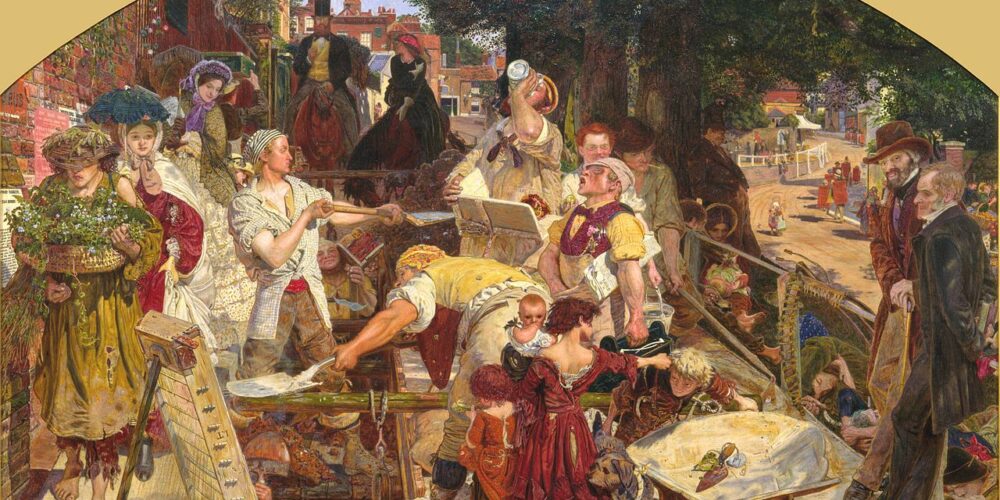Dialectics says that everything is changing and everything is evolving. Capitalism is no exception—so can tactics for abolishing capitalism be the same?
Capitalism was nascent during Marx’s time; and by the time Lenin arrived it had evolved into imperialism, which he said is the highest stage of capitalism. Marx’s assessment was that revolution will take place in a well-developed capitalist society, such as England or Germany, where there was a strong working class. Lenin did the “concrete analysis of the concrete conditions” in Russia and then created the tactic that showed that, thanks to uneven development in the capitalist world, a revolution could be possible in the weakest link.
The Leninist party was able to overthrow the Russian bourgeoisie, built on the ruins of the feudal Tsar regime, because it didn’t have the time (between February and October 1917) to build a bourgeois state machine, whereas in Britain the bourgeois state machine was strong—and therefore could sabotage Ireland’s heroic 1916 rising. As Lenin said, “the misfortune of the Irish is that they rose prematurely, when the European revolt of the proletariat had not yet matured.”
So the tactics in each case against imperialism have to be based on concrete conditions.
Capitalism is based on overproduction; and colonisation was carried out to accumulate the resources (both raw material and labour) needed for production and for discovering new markets to trade off the commodities.
Colonialism was carried out in the name of civilisation. It was the “white man’s burden” to civilise the world; but the plunder and atrocities had no indications of civilisation. Even Marx thought Britain’s colonisation of India (which he called the “Ireland of the east”) an “unconscious tool of history”; but his later assessment in relation to India was that “the autocracy wanted to conquer it, the moneyocracy wanted to plunder it and the millocracy wanted to undersell it.”
The footprints of imperialism
Imperialism uprooted Africans from their countries and made them toil in the sugar-cane fields of the Caribbean so that Europe could enjoy the taste of sugar. Imperialism destroyed Indian agriculture and made the country grow cotton, which could be fed to the factories of Manchester, and the product then sold to Indians cheaply to destroy the local weavers.
Even in Ireland the plantations were methods of creating the “primitive accumulation of wealth” in order to uproot Irish people from their land so that they become cheap labour to operate massive machines in the factories.
Imperialism threatens other countries that get in its way in its plundering of the world. The bombs dropped on Hiroshima and Nagasaki were not to defeat Japan but were a warning to the Soviet Union, which was rising as a superpower.
As it’s the nature of a river to flow into the sea, capitalism inevitably runs into the quicksand of crisis. Every day, attempts to recover deepen the crisis. The trade union movement involved in day-to-day struggles against capital should simultaneously lead the working class to the understanding that capitalism comes out of every crisis by subjecting labour to greater exploitation and turning more people from the middle classes into paupers. The “American dream” for the middle classes is turning out to be a nightmare.
The solution is to shatter the system and build a new one devoid of exploitation and to abolish wage slavery, which will emancipate the working class. The working class, nurturing the illusion that it can ameliorate the conditions, should be made to realise that bourgeois “democracy” is fragile and will last as long as the ruling class allows it to exist.
And if it is no longer possible to rule by the old method there is always room for fascism. As Antonio Gramsci said, “fascism is an attempt to solve the problems of production and exchange with machine guns.” Fascism has a material base: it is used by the bourgeoisie when everything else fails, unleashing fatal attacks on trade unions and workers’ rights.
Modern imperialism is not like colonialism or just military coercion but is for imposing neoliberal policies and using globalisation to shift labour-intensive work to countries with cheap labour, to provide those commodities to its population so that they can keep the real wages stagnant in their own countries. Any government that doesn’t allow its resources to be extracted and labour to be exploited is labelled “undemocratic” and will be destabilised by sponsored rebellions or threatened with sanctions.
The fight against imperialism
The bourgeoisie promised liberty, equality and fraternity during the French Revolution but could not implement it, because if it did the bourgeoisie could no longer exist. Only by transcending the capitalist system will we achieve liberty, equality, and fraternity.
Working-class issues of the global south, where capital exploits the labour in sweatshops, reminds us that what Engels mentioned in The Conditions of the Working Class in England should be taken seriously and internationally. The shifting of production to low-wage countries results in race-to-the-bottom wages and the weakening of trade unions all over the world.
Ireland’s shift from being neutral to being a partner of imperial warmongers should be opposed. Military expenditure should be questioned, and more spending on people’s welfare, such as education, housing, and a free universal health service, should be demanded.
Initiatives for creating international pressure to lift sanctions on developing countries that fight against imperialism and protect their sovereignty should be supported. Environmental issues are no longer at the periphery of the class war: they have become a central issue in the fight against capitalism. “Green capitalism” is an oxymoron.
The neoliberal agenda of imposing “austerity,” which is a euphemism for class war declared by the bourgeoisie against the working class, must be fought.
We can be sure that the forthcoming congress of the CPI will analyse the concrete conditions in Ireland so as to design the tactics for unlocking the imperialist triple lock of Britain, the United States, and the European Union.






